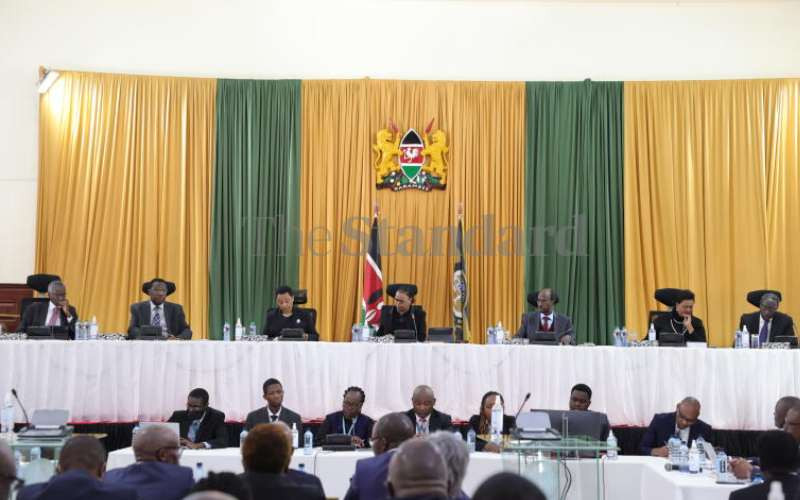×
The Standard e-Paper
Home To Bold Columnists

Going by the Supreme Court's judgment that upheld President-elect William Ruto's win in the August 9 presidential election, the electoral agency should have come out smiling-satisfied that it had conducted a credible election.
Indeed, the Supreme Court unanimously found that the Independent Electoral and Boundaries Commission (IEBC) had conducted the election in accordance with the law. Hence the dismissal of all nine petitions that had, by and large, alleged that the IEBC had bungled the election.